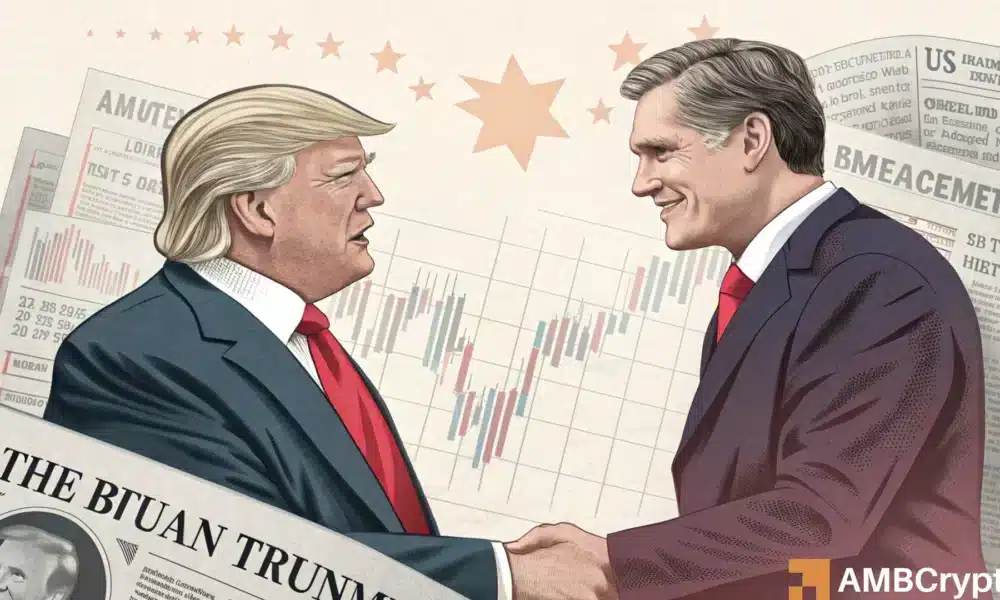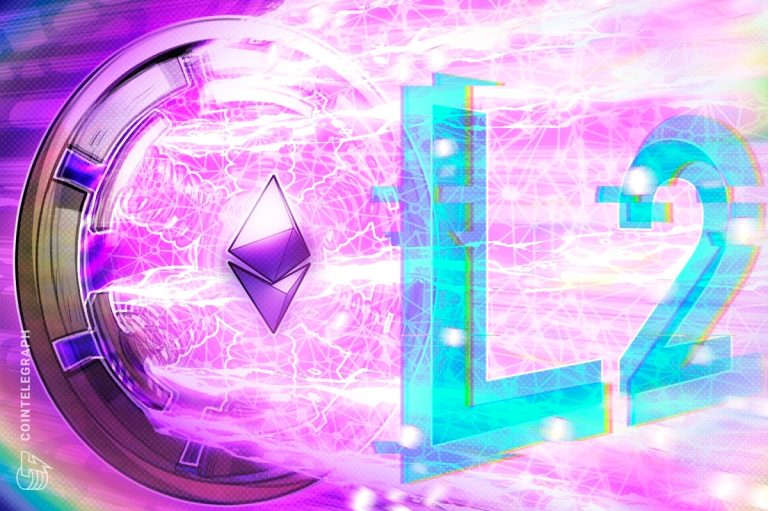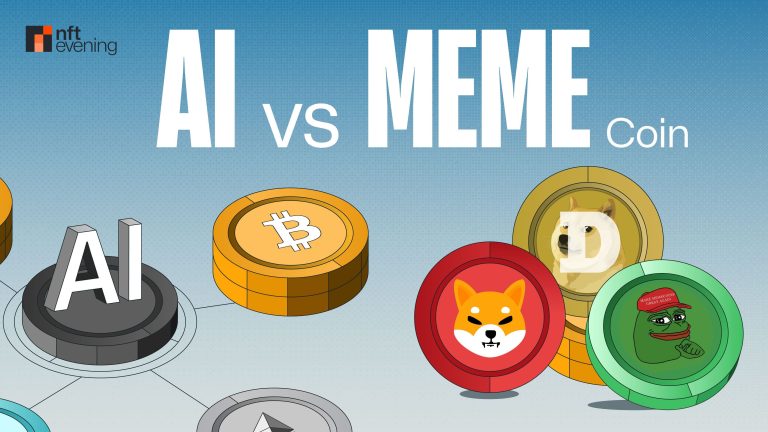- Trump’s tariff moves and UK deal talks are driving crypto markets past $3 trillion.
- Crypto now responds to global diplomacy, acting as a barometer for geopolitical and trade shifts.
Crypto markets have smashed through the $3 trillion mark just as President Trump teased a major UK trade deal, sending digital assets soaring.
As coins move in step with geopolitical signals, a new question emerges: Is crypto becoming Wall Street’s foreign policy barometer?
Tariff tactics and the domino effect
Since returning to office, President Trump has reignited his tariff strategy — announcing steep levies on dozens of countries in early April.
The move sent shockwaves through global trade networks, prompting urgent negotiations with U.S. allies and rivals alike.
A baseline 10% global tariff now looms, while “reciprocal” tariffs of up to 25% target imports such as steel, aluminum, and automobiles.
One country appears to have made early headway: the UK.
With Prime Minister Keir Starmer confirming a joint announcement on tariff relief later today, London has positioned itself as one of the first movers in Trump’s new trade regime.
Crypto’s role in the new economic order
Digital assets are fast becoming responsive instruments in the global economic narrative.
Bitcoin [BTC], Ethereum [ETH], and several altcoins rallied on news of potential tariff rollbacks, mirroring traditional market behavior tied to geopolitical signals.
As institutional players integrate crypto into portfolios, the space is reacting more sharply to macroeconomic shifts, including trade realignments and cross-border financial flows.
The surge shows crypto’s evolving function: not just as a hedge against inflation or fiat instability, but as a forward-looking gauge of diplomatic direction.
Tariff easing, particularly among large economies, signals risk-on sentiment—pushing capital into volatile, high-reward markets like crypto.
Where do we go from here?
With the UK deal imminent, attention shifts to other bilateral talks. Washington is reportedly close to finalizing trade pacts with India and Israel.
Further discussions are in progress with Japan, South Korea, and Vietnam. These fast-tracked deals are part of Trump’s broader push to rewire the global trading order.
Meanwhile, relations with China remain strained. Both countries are preparing for high-level talks in Switzerland this week, following tit-for-tat tariffs reaching up to 145%.
The outcome of these negotiations could further shape investor sentiment — and, by extension, crypto markets — in the months ahead.












